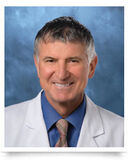Adam's Heart Valve Surgery Blog – Page 80
What Is A Xenograft?
By Adam Pick on September 21, 2007
I don’t know about you… But, when I was diagnosed with severe aortic stenosis and valve regurgitation I became a heart valve research fanatic. I read up on every possible heart valve option, surgical procedure, the top cardiothoracic surgeons, etc.
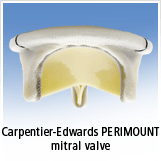
Anyways, the term XENOGRAFT appeared during my research on heart valve replacement. So, surprise… surprise… I just checked my email and guess what I found? An question that read, “Adam, Do you know what is a xenograft?”
According to MedicineNet.com The proper definition of a xenograft is a surgical graft of tissue from one species to an unlike species (or genus or family). For example, a graft from a baboon to a human is a xenograft. The prefix “xeno-” means foreign. It comes from the Greek word “xenos” meaning stranger, guest, or host. (Xeno- and xen- are variant forms of the same prefix.)
Can I Really Get A Pig Valve Replacement?
By Adam Pick on September 19, 2007
Yes. It’s true… For patients requiring heart valve replacement surgery, one of your surgical options will be a pig valve replacement (also known as a porcine valve and a bioprosthetic heart valve).
I’ll never forget when I was diagnosed with severe aortic stenosis (AS). That was a difficult experience. Open heart surgery was definitely not in my “life plan”. The challenge of digesting that diagnosis was compounded when I learned that a pig valve might offer my dilated heart relief. To learn more about aortic stenosis, click here.
I remember thinking, “HUH??!!! A PIG VALVE REPLACEMENT? YOU WANT TO PUT A PIG VALVE IN MY HEART?”
As I would later learn, pig valves have been used as human heart valve transplants for over twenty years. Companies including Edwards Lifesciences and St. Jude Medical are the leading pig valve replacement manufacturers. Interestingly enough, cow valve tissue is also used in the construction of pericardial heart valve replacements – known as bovine valves.
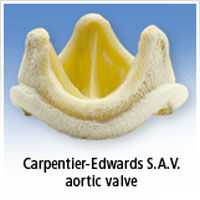
Are Infections Common During or After Heart Valve Surgery?
By Adam Pick on September 18, 2007
Earlier today, I received an email with a pretty interesting question that reads, “Do you have any statistics about heart valve operations and whether or not surgery infection is common?”
As always, I love questions that I have never heard before. This question about heart valve operation and surgery infection was definitely a new one.

Do Patients Make Lemon Out Of Heart Valve Surgery Lemonade?
By Adam Pick on September 18, 2007
When it comes to heart valve surgery, I know that the human spirit is resilient, creative and inspiring.
“What the hell is Adam writing about?” you may be wondering.
Well, hold on now! Give me a moment to explain.
Everyone I know will experience many obstacles in life. For me, one of those low-points was the day my cardiologist told me that my heart was dilated and I needed aortic valve replacement.
“Ya-ya-ya-ya-ya mean, oh-oh-oh-oh-open heart sur-sur-sur-surgery?” I queried my heart doctor in stuttering disbelief.
In that moment, a unique fear struck me. Maybe it struck you too? Several questions pulsed through my conscious – “Am I going to die?” “Will I surf again?” “How long will I be out of work?”
And lastly… “Why… Oh… Why… Did I get a lemon for a heart?” (Okay, maybe the thought wasn’t that dramatic.)

Joke: A Cardiac Surgeon And A Car Mechanic Joke
By Adam Pick on September 14, 2007
Nothing like a little heart valve humor to start the weekend, right?
I hope you enjoy this… It got me to chuckle!
Here goes nothing!
So… A mechanic was removing a cylinder head from the motor of a Harley, when he spotted a world-famous heart surgeon in his shop. The heart surgeon was waiting for the service manager to come take a look at his bike.
The mechanic shouted across the garage, “Hey Doc can I ask you a question?” The famous surgeon, a bit surprised, walked over to the mechanic working on the motorcycle.
The mechanic straightened up, wiped his hands on a rag and asked, “So Doc, look at this engine. I also can open it up, take valves out, fix’em, put in new parts and when I finish this will work just like a new one. So how come I get a pittance and you get the really big money, when you and I are doing basically the same work?”
The surgeon paused, smiled and leaned over, and whispered to the mechanic, “Try doing it while it’s running.”
Keep on tickin!
Adam
Patient Discharged! Sharon Slattery Plans To Skydive On 61st Birthday!
By Adam Pick on September 13, 2007
There is nothing better than receiving an email from a patient following their surgery and hospital discharge.
Today, I received an email from Sharon Slattery, a reader of my book who just had heart valve surgery. The words in her email were absolutely powerful.
Sharon’s attitude towards her procedure has always been amazing. After she read my book, she wrote me an email telling me that she had plans to sky dive on her 61st birthday in January, 2008.
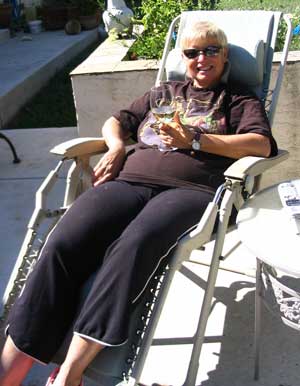
Thanks For The Inspiration!
By Adam Pick on September 13, 2007
Hey everybody,
I just want to take a quick second to thank you for your emails.
I just checked my inbox for the first time in a few days and I was touched, moved and inspired by the nice emails from my book readers and visitors to this site.
I can’t tell you how good it feels to know that I am helping patients and caregivers better understand the realities – the good and sometimes challenging – of heart valve surgery.
I never imagined that this little website and book would be helping so many people around the world!!!!
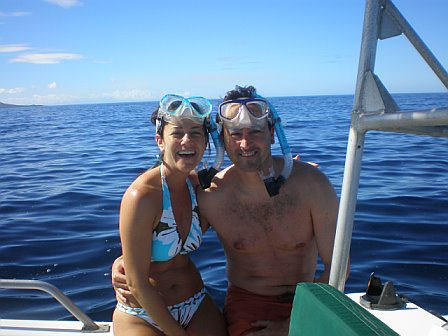
Thanks again and have a great day!
On behalf of Robyn (my wife) and I…
Keep on tickin!
Adam
“Excellent” Heart Valve Surgery Patient Quote #1 – DeWayne Epley
By Adam Pick on September 12, 2007
It happens often.
I will be talking with a heart valve surgery patient when they say something brilliant. As I learned when I had my aortic and pulmonary valves replaced, speaking with former patients was incredibly helpful. There is a sense of related-ness that is simply unmatched.
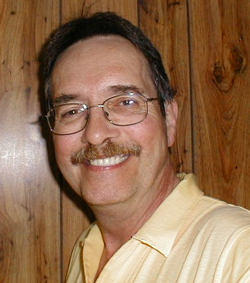
DeWayne Epley – Former Heart Valve Surgery Patient
So…. Anytime a former or current patient says something to me that I think is useful and valuable, I’m going to share it in this blog under a new category, “Excellent Patient Quotes”. The first “Excellent Patient Quote” goes to DeWayne Epley from Georgia. DeWayne was interviewed during my research for the 2007 revision of The Patient’s Guide To Heart Valve Surgery.
About learning more about heart valve surgery, DeWayne noted:
“Don’t be afraid to ask questions. No question is un-important as long as it helps you to get ready for thing to come. Read as much as you can to become as familiar with circumstances and procedures and options. The better prepared you are.. The better your experience will be.”
I completely agree DeWayne. In fact, I think that is why I wrote my book – to help patients better understand the entire heart valve surgery process.
Keep on tickin!
Adam
Dr. Jennifer Ellis, MD – Heart Surgeon, Washington, DC,
By Adam Pick on September 11, 2007
From February through April of this year, I ran an extensive survey to better understand the realities of heart valve surgery for patients and their caregivers.
Some of the questions posed to the 78 former, heart valve surgery patients were about their cardiothoracic surgeons. The responses to these questions were very interesting.

As I reviewed the survey results, a few select heart surgeons received high marks and comments from their heart valve surgery patients. One of those top cardiothoracic surgeons was Jennifer Ellis from Washington, D.C.
My Heart Remembers Scott Weingard On 9/11
By Adam Pick on September 11, 2007
It still creeps up on me.
This day. The horrible memory of that phone call.
“We’re under attack… This is really, really bad. Turn on your TV now!!!”
Hours later, tears later, disbelief…
Then, I heard about Scottie, my fraternity brother. I just had to swallow.
Scottie was such an amazing person. He had such an incredible, contagious laugh. He was such a good guy. Such a great heart.
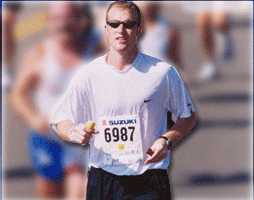
When I visit Ground Zero, I still believe his name will not be on that list.
But, it is… And, once again, I try to make sense of it all. Obviously, that doesn’t work.
Today, I’m wishing you well Scottie.
Hopefully, you and Larry are playing golf with the boys in NYC today.
Keep on tickin,
Adam
Ear Plugs And Hospitals… Amen!
By Adam Pick on September 10, 2007
If there is one thing I crave in life… It’s good sleep.
Robyn (my wife) and I love getting a restful 7-9 hours of sleep every night.
That said, when I went into the hospital for my aortic valve replacement operation, I wanted to make sure I would be able to sleep peacefully as my body started the healing process after my surgery.
If you are not aware, hospitals can be very, very, very noisy.
There are machines bleeping all over the place. Nurses and doctors are constantly coming in-and-out of your room. Plus, there is the chance you will not have your own room. If you are sharing your room, you may have to listen to your neighbor and… your neighbor’s friend and family. Need I say it? More noise.
Because of the noise potential in hospitals and my hunger for sleep, I brought ear plugs to the hospital with me. I have to say “Thank God!” for that choice. It’s hard enough to sleep following surgery given the nightsweats that many patients (including me) experience.
I used an ear plug brand called Hearos. These ear plugs are very comfortable, easy-to-use (no waxie goup), and the ear plugs really filtered out unwanted hospital noise. In my opinion, having ear plugs in the hospital is a must.
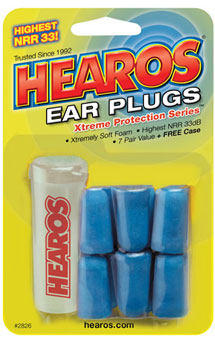
Remember, you are going to be spending a good amount of time in the hospital. My recent survey shows that most patients stay in the hospital about five days – more if complications occur. Again, you want to be as comfortable as possible.
For this reason, there is a small list of items you may want to bring with you to the hospital including ear plugs. I write about how to best prepare for surgery in my book. In fact, I have a chapter dedicated to it.
Keep on tickin!
Adam
What Is The Most Commonly Operated On Heart Valve?
By Adam Pick on September 10, 2007
Hey everyone,
So, I just got stumped. I was asked a pretty unique question that I have never heard before. The question is, “What is the most commonly operated on heart valve?”
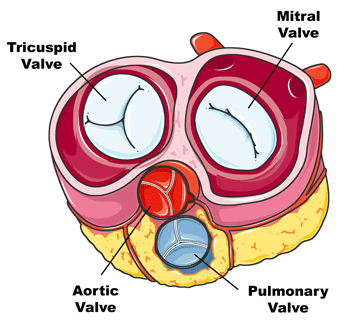
As you know, I’m not one to back down from a good, challenging question…
Therefore, I went to the Internet and started searching at Google.
My Chest Scar After Open Heart Surgery
By Adam Pick on September 5, 2007
On Monday, Labor Day, I chose to really enjoy myself. So, I did one of my favorite things…
I WENT TO THE BEACH!!!
As you can see, my family and I went to Manhattan Beach in California and experienced a picture perfect day. We enjoyed the sun, the Pacific Ocean and a picnic of submarine sandwiches.
When I downloaded the photos just now, I immediately noticed the smiles on everybody’s faces. We had so much fun.
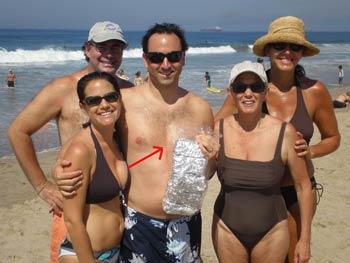
“Are There Potential Angiogram Risks or Angiogragraphy Dangers?” Asks Karen
By Adam Pick on September 3, 2007
Yesterday, I received an interesting email from Karen, who has been diagnosed with severe aortic stenosis. Her cardiologist told her that an angiogram will be needed prior to surgery. Karen’s questions to me were about the exam and angiogram risks.
More specifically her questions were, “Does an angiogram hurt? Is it painful? Is there any potential danger or angiogram risks during the test?”
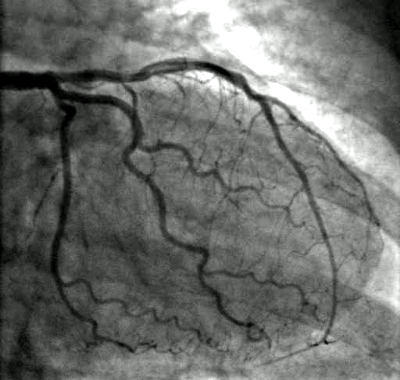
Unfortunately, I have no personal experience that enables me to respond to the questions about the pain of an angiogram. Although I did have a double heart valve replacement (aortic and pulmonary valves), I did not have an angiogram prior to surgery. Because, I was relatively young and in good, physical condition, my surgeon (Dr. Vaughn Starnes), did not feel it was necessary.
That said, many patients will have an angiogram during the diagnosis period and/or the day before surgery.
“Angiogram?” you may be wondering, “What the heck is an angiogram? What are the potential angiogram risks or dangers?”
What Are The Common Coumadin Medication Interactions?
By Adam Pick on September 3, 2007
As we’ve talked about before, Coumadin (Warfarin Sodium) is used by patients following heart valve replacement in which mechanical heart valves are selected by the patient and/ or surgeon. You can click here to learn more about Coumadin medication and its long-term use for preventing blood clots on mechanical heart valves following heart valve surgery.
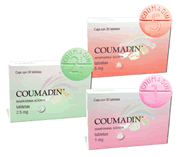
That said, this blog is also starting to answer some questions about Coumadin medication interactions with other popular drugs – including Coumadin and Prilosec and Ultram and Coumadin.
In the near future, Dr. Robert Light and I are going to be addressing some of the other contraindications of Coumadin use and pharmaceuticals.
Heart Murmur Issues With Loratadine And Aortic Stenosis?
By Adam Pick on September 1, 2007
I spent the first 33 years of my life with a heart murmur resulting from a congential heart disorder known as a bicuspid aortic valve.
Now? After successful heart valve replacement surgery… Guess what? No more more heart murmur!
However, given my history, I am very sensitive to any questions I receive about heart murmurs. Although most murmurs do not results in heart valve surgery, some do. That said, taking preventative steps to minimize the risk of heart valve damage is critical.
Earlier today, I received an email about heart murmurs and loratadine. The questions read, “Can Loratadine cause a heart murmur?” and “Does Loratadine affect Aortic Stenosis?”
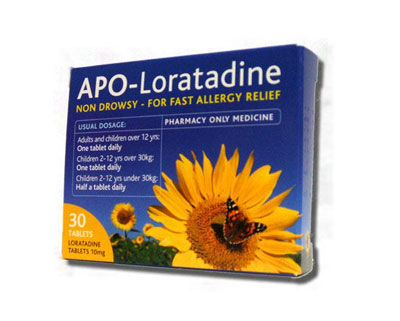
So you know, Loratadine is the generic name of popular antihistamine that is more readily known as Claritin. The product is made by Schering-Plough and is consumed in tablet or liquid form.
What Is The Medtronic Hancock Porcine Heart Valve?
By Adam Pick on September 1, 2007
There are several choices a patient will make as they prepare for heart valve replacement surgery – the surgeon, the hospital, the procedure, where to recover, etc.
For those patients who chose to have a tissue valve replacement, the question ultimately becomes, “Which tissue valve should I chose?” and “Which manufacturer makes the best valve for me?”
In this blog, I am going to profile a number of the leading valve manufacturers (Edwards, Medtronic, St. Jude Medical, On-X, ATS) and their valve replacement products. In my opinion, it really does help to know more about the valve that may accompany you during the rest of your life, right?
Today, I am going to profile the Medtronic Hancock Porcine Heart Valve.

What About Sex After Heart Valve Surgery?
By Adam Pick on September 1, 2007
During my recovery from aortic and pulmonary valve replacements, there were many memorable experiences. There were “highs” during my recovery – my engagement to Robyn. And, there were “lows” during my recovery – cardiac depression.
That said, one of the more memorable experiences dealt with sex after heart surgery.

As you would imagine, this is a a very common question when I chat with patients and caregivers about the recovery from cardiac procedures including heart valve repair and heart valve replacement. The question usually goes like this, “How long until I/we can have sex after heart surgery?”
Well…
During my recovery, I did muster up the uncomfortable courage to ask Nurse Carrie this exact question about sex after heart surgery. Carrie looked at me and said, “Can you walk up two flights of stairs?”
I nodded yes.
Carrie exclaimed, “You’re good to go sailor! It’s time for sex after heart surgery! I hereby give you permission to do the Wild Thing!”
I laughed out loud.
It was a classic moment that belonged in some sort of fantastic movie.
FYI, this conversation between Nurse Carrie and I happened about four weeks after my double valve replacement surgery. However, you should know that while this story is quite playful, there are a number of post-operative issues which may inhibit the patient’s desire to re-engage in sexual activity following surgery.
Keep on tickin!
Adam
Dr. Robert Light To Provide Medical Insight On Heart Surgery Blog
By Adam Pick on August 31, 2007
Earlier today, it was announced that Dr. Robert T. Light, American Board Diplomat of Psychiatry and Neurolgy, would provide expert medical commentary on Adam’s Heart Valve Surgery Blog.
Dr. Robert T. Light is a practicing physician in Virginia Beach, Virginia and specializes in drug interactions, human physiology, psychiatric medicine.
“I am thrilled to welcome Dr. Robert Light to our growing team of experts focusing on patient care specific to heart surgery,” noted Adam Pick, the author of The Patient’s Guide To Heart Valve Surgery and blog moderator.
Adam’s Heart Valve Surgery Blog was launched in December, 2006 to serve as a resource for both patients and caregivers dealing with the realities of heart valve repair and heart valve replacement – from diagnosis through recovery.
“Adam has taken his own experience as a heart valve surgery patient and created something very unique and very helpful for patients and caregivers around the world,” Dr. Robert Light stated. “I am very excited to share my own thoughts and medical expertise on Mr. Pick’s cardiac surgery blog.”
Dr. Robert Light has already begun sharing his thoughts on prior blogs including Coumadin and Prilosec as well as Contraindications of Ultram and Coumadin.
Are “Do It Yourself” Cardiac Rehabilitation Programs Available?
By Adam Pick on August 31, 2007
I must admit. Entering Torrance Memorial Cardiac Rehab Program was the turning point in my recovery from aortic and pulmonary heart valve replacements (known as the Ross Procedure). That said, I am a big, huge, tremendous fan of finding a good cardiac rehabilitation program following open heart surgery.
“Why?” you are wondering.
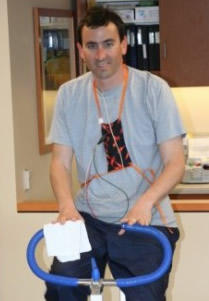
Adam Pick At Torrance Memorial Hospital
Cardiac Rehab Program (California)

